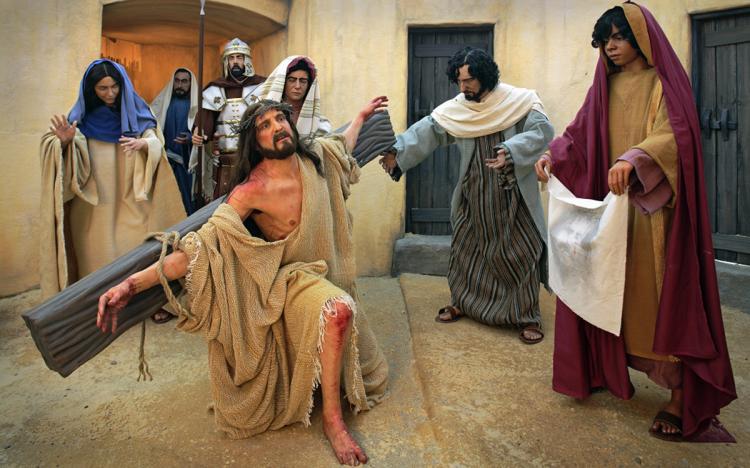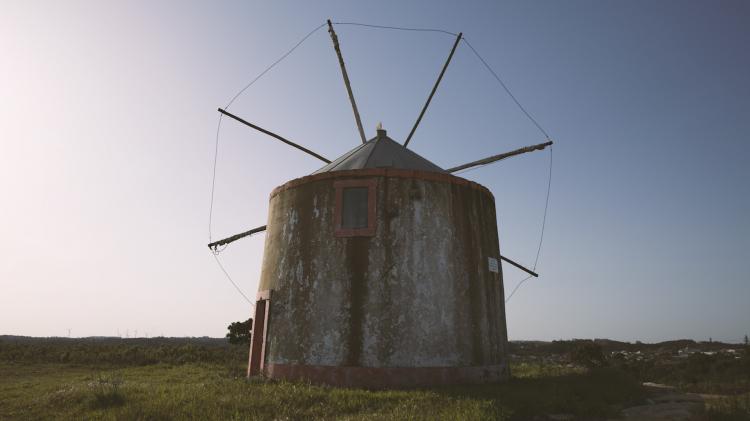
A city with
history
In Fatima you find a variety of religious and tourist points of interest.
A city with history, strongly linked to religion and agricultural traditions.
The name Fatima is strongly linked to religion. It was in that village in 1917 that a woman in white appeared to three children while they were keeping their sheep. The apparitions were repeated on the thirteenth of every month until October of that year. Since then, Fatima is for many, a city of apparitions, devotions and strong religious belief. But the name Fatima, is older than that.

It is 39ft high, and is the largest steel heart in the world. The sculpture, by Fernando Crespo, is located on Avenida José Alves Correia da Silva, very close to the Basilica of the Most Holy Trinity.
The Heart is called Francis, in a tribute to the Pope who on May 13, 2017 presided over the celebrations commemorating the Centenary of the Apparitions.

The Fatima Parish Church dates back to 1568. It was in this Church that the three Little Shepherds were baptized.
Visiting Hours: 8h30 to 18h00 (No visits allowed during celebrations)

Next to the Parish Church of Fatima, there is a Mural of terracotta color that intends to pay homage to the inhabitants of the Parish.
The Mural represents the people of Fatima and respective identity dimensions. The work was made by Martinho Costa, inhabitant of Fatima.

Built in honor of Our Lady of the Rosary at an uncertain time (between the XIV and XV centuries), the Chapel of Casal Farto belonged to the Knights of the Order of Malta, proven by the Cross of the Templars of the stained glass windows. This Gothic style chapel is private property, it was rebuilt in 1905 by Francisco Prazeres, Rector of the Guarda High School, who had hoped to return to Casal Farto to celebrate Mass and to spend the rest of his life there.
Visiting Hours: subject to appointment (private chapel)
One day, a mute little shepherd girl was keeping her flock, when a lady appeared and asked her for a sheep. The girl felt her tongue come to life and replied that she could not give Her a sheep without her father's permission.
On hearing his daughter speak, the father told her to give that lady anything she wanted. The Lady asked that a chapel be built on that spot. Later, when the girl’s father went up to the place indicated by his daughter, he found there a statue of Our Lady.

Portuguese religious art has a prominent place in the Consolata museum in Fatima. Here, there is a vast collection of Portuguese sacred art as well as ethnography from various countries of the world.
Every month, the Consolata Museum hosts the "Tea with Art", a social gathering, in which guests from various sectors debate current issues.
Visiting Hours: November to March: 10h00 to 17h00; April to October: 10h00 to 19h00

210 wax figures give life to the Museum of the Life of Christ. The Museum tells the story of Jesus Christ in 33 scenes, from the annunciation of the Angel to Mary up to the Ascension of Jesus to Heaven.
Visiting Hours: November to March: 9h00 to 18h30; April to October: 9h00 to 19h00.

The Wax Museum takes you back to the day that Our Lady appeared to the three little Shepherds for the first time. The human sized figures tell the religious story of Fatima.
Visiting Hours: November to March: 9h00 to 18h00; April to October: 9h30 to 18h30.

A virtual and interactive journey with state-of-the-art multimedia technology, sound and smell. The story of Fatima is told here in a modern way, using holograms and four-dimensional images. The experience, beyond visual, is also meant to be sensorial and emotional.
Visiting Hours: November to March: 9h30 to 18h30; April to October:9h30 to 19h00.

Casa das Candeias (The House of the Oil Lamps) is part of the Francisco and Jacinta Marto Foundation. It is a museum center that evokes the life and spirituality of the little visionaries. The main focus of this museum's collection is precisely the lamps that symbolize these two children. The house of the lamps is open daily from 9h00 to 13h00 and from 14h00 to 18h00.
Entrance is free.
The Fátima museum is an authentic time capsule, which takes you back to the days when olive oil was produced in an artisanal way. A few minutes from the center of Fátima, don't miss the opportunity to visit the museum.
Entrance is free!

The windmills fill the landscape of the Fazarga area in Fatima. The mills typical of this region were round brick structures.
It was there that wheat, corn, barley and rye were milled in the twentieth century
Visiting Hours: Free

A tribute to the agricultural work that characterized Fatima for decades. The threshing floor was essential to agricultural work. This was where the cereals were dried and threshed in the summer and it was a very important place for socializing.
Visiting Hours: Free

It shows the time with precision, It is always accurate and it has never needed to be wound or needed a change of batteries. The Sun clock in Casal Farto has told the time since 1682 and has withstood the test of time on the roof of one of the houses typical of this village.
Visiting Hours: Free